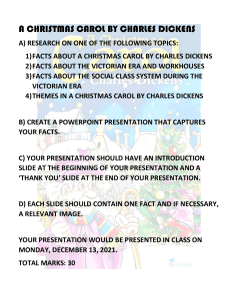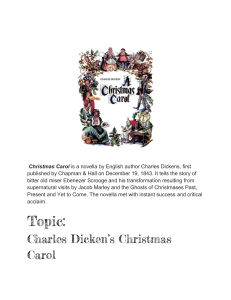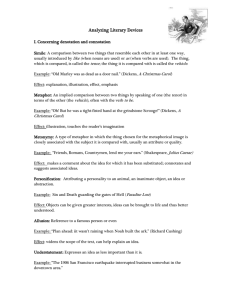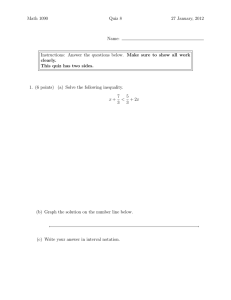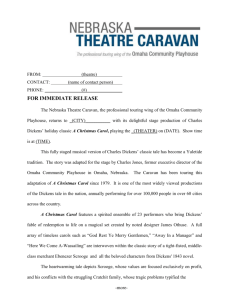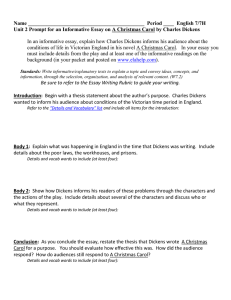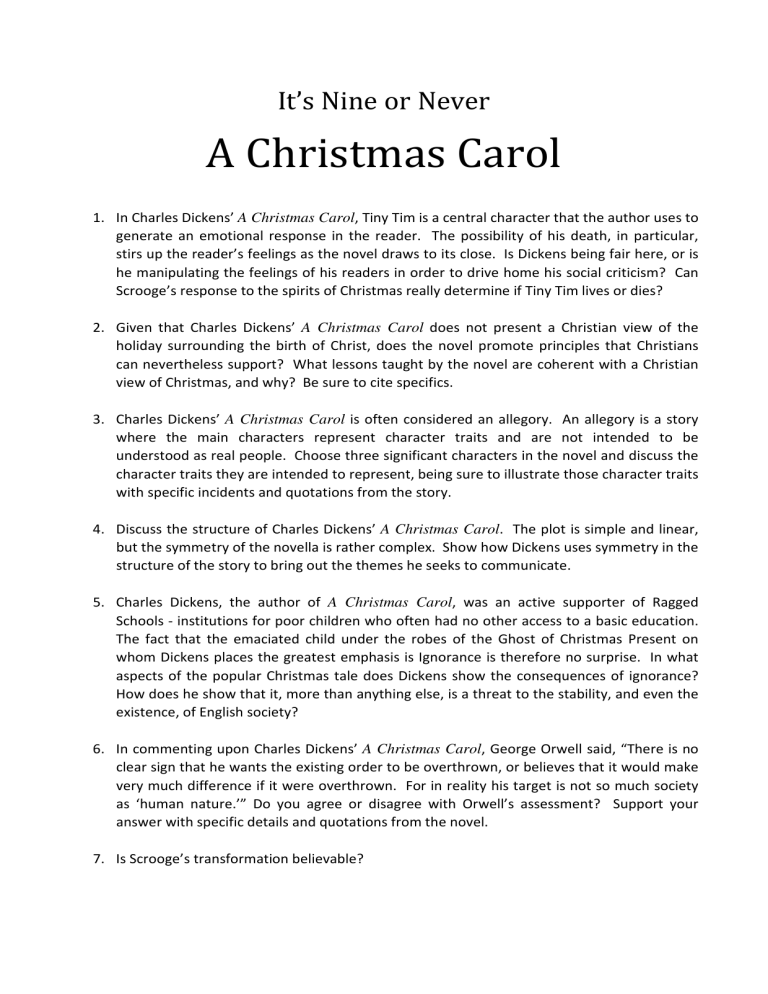
It’s Nine or Never A Christmas Carol 1. In Charles Dickens’ A Christmas Carol, Tiny Tim is a central character that the author uses to generate an emotional response in the reader. The possibility of his death, in particular, stirs up the reader’s feelings as the novel draws to its close. Is Dickens being fair here, or is he manipulating the feelings of his readers in order to drive home his social criticism? Can Scrooge’s response to the spirits of Christmas really determine if Tiny Tim lives or dies? 2. Given that Charles Dickens’ A Christmas Carol does not present a Christian view of the holiday surrounding the birth of Christ, does the novel promote principles that Christians can nevertheless support? What lessons taught by the novel are coherent with a Christian view of Christmas, and why? Be sure to cite specifics. 3. Charles Dickens’ A Christmas Carol is often considered an allegory. An allegory is a story where the main characters represent character traits and are not intended to be understood as real people. Choose three significant characters in the novel and discuss the character traits they are intended to represent, being sure to illustrate those character traits with specific incidents and quotations from the story. 4. Discuss the structure of Charles Dickens’ A Christmas Carol. The plot is simple and linear, but the symmetry of the novella is rather complex. Show how Dickens uses symmetry in the structure of the story to bring out the themes he seeks to communicate. 5. Charles Dickens, the author of A Christmas Carol, was an active supporter of Ragged Schools - institutions for poor children who often had no other access to a basic education. The fact that the emaciated child under the robes of the Ghost of Christmas Present on whom Dickens places the greatest emphasis is Ignorance is therefore no surprise. In what aspects of the popular Christmas tale does Dickens show the consequences of ignorance? How does he show that it, more than anything else, is a threat to the stability, and even the existence, of English society? 6. In commenting upon Charles Dickens’ A Christmas Carol, George Orwell said, “There is no clear sign that he wants the existing order to be overthrown, or believes that it would make very much difference if it were overthrown. For in reality his target is not so much society as ‘human nature.’” Do you agree or disagree with Orwell’s assessment? Support your answer with specific details and quotations from the novel. 7. Is Scrooge’s transformation believable?
